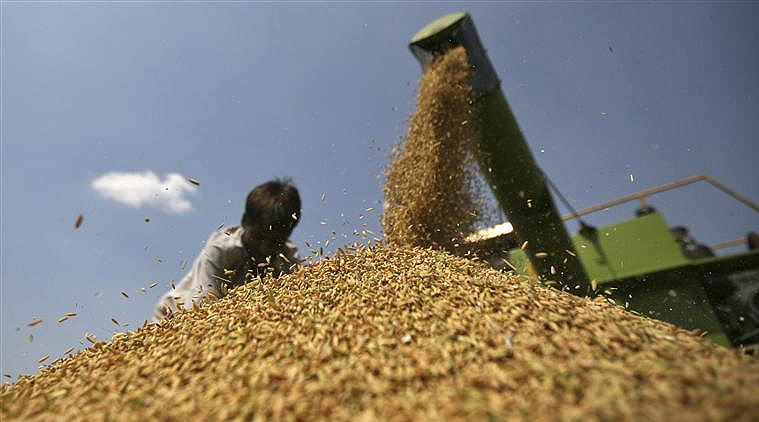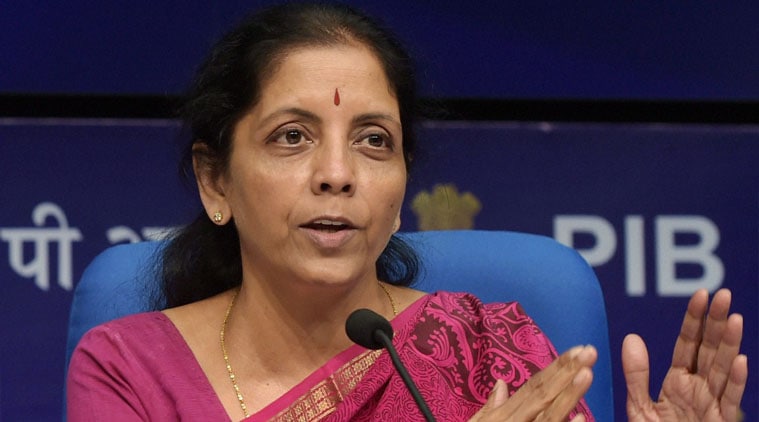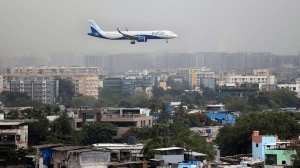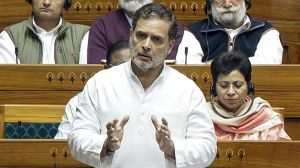As PM Narendra Modi heads to G20, India and US announce WTO deal
India has reached an agreement with the United States on public stockpiling of food.
 India and the United States have resolved their differences on public stockholding of food. (Reuters)
India and the United States have resolved their differences on public stockholding of food. (Reuters)
Moving to end the deadlock at the World Trade Organisation (WTO) over the signing of a landmark Trade Facilitation Agreement (TFA), India and the US on Thursday announced they had “successfully resolved” their differences on the issue of public stockholding for food security purposes.
India had clubbed the adoption of the TFA — a global pact aimed at simplification of Customs procedures to minimise delays in clearance of goods at ports — with a “permanent solution” that safeguards its food security programmes.
 Nirmala Sitharaman.
Nirmala Sitharaman.
The WTO’s Ministerial Conference at Bali last December had provided for only a four-year “peace clause” during which no member country would be legally barred from implementing food security programmes even if the farm subsidies resulting from it breached the caps imposed by the original Agreement on Agriculture (AoA).
India had, however, rejected the temporary peace clause and insisted on its right to provide unlimited subsidies until a “permanent solution” to the issue was found. This stance attracted strong criticism, especially from industrialised countries.
But now, in a seeming climbdown, the US has agreed to a mechanism under which members will not challenge food security programmes under the WTO’s dispute settlement procedures. Such a mechanism “will remain in place until a permanent solution regarding this issue has been agreed and adopted”, the bilateral agreement entered between the two countries ahead of a G20 leaders’ summit later this week has said.
The proposal agreed upon will now have to be taken up by the General Council, the WTO’s highest decision-making body, next month.
“We are extremely happy that India and the US have successfully resolved their differences… in a manner that addresses our concerns.
This will end the impasse at the WTO and also open the way for implementation of the TFA. We are confident that the (member countries) will take the matter forward in the WTO in a constructive spirit,” Commerce and Industry minister Nirmala Sitharaman told reporters here.
The WTO’s AoA currently limits the value of farm subsidies by members at 10 per cent of the total value of their crop production. The subsidies, in turn, are computed in relation to global “reference prices”. A farmer producing say, wheat, is deemed as receiving a subsidy if the procurement price paid to him is above the world price. But since the latter has been fixed at 1986-87 levels — when global wheat prices were $ 130-$ 140 a tonne — India has been demanding a revision in the subsidy calculation methodology to reflect current prices, which are in the $ 225-$ 230/tonne range.
Sitharaman attributed the latest bilateral breakthrough to Prime Minister Narendra Modi’s “successful” US visit in September. “After the Prime Minister’s visit to the US, there was a greater understanding of India’s position,” she said.
In his address to the World Economic Forum’s India Economic Summit last week, Finance Minister Arun Jaitley had said that India’s position on TFA had been “completely misunderstood because of unreasonable positioning by some of the developed countries”.
He had underscored that India was committed to protect the interests of its farmers, to enable which a permanent peace clause was required — and “till you resolve that issue, India should not be taken to the dispute resolution mechanism”.
Meanwhile, in Washington, the US Trade Representative, Michael Froman, noted that efforts to put the TFA in place were dealt a setback in July, when a small group of countries, led by India, “blocked consensus” on wrapping up the pact by the agreed deadline of July 31.
“We have overcome that delay and now have agreement with India to move forward with full implementation,” he said in a statement.
- 01
- 02
- 03
- 04
- 05































